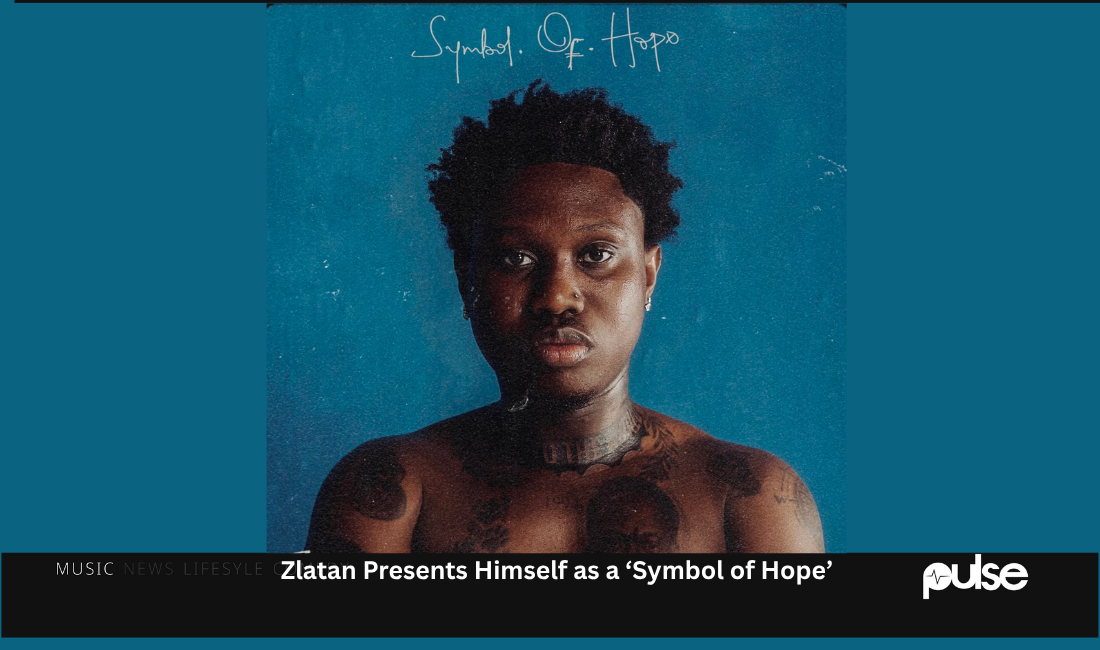
Zlatan is a rapper who has delivered hit records, shone on hardcore rap cuts, participated in the famous Hennessy Cypher, and launched a successful streetwear brand. For many, his career is the very definition of hip-hop, yet purists often dismiss him because he doesn’t adhere to their traditional standards.
But Zlatan doesn’t care, and why should he? Catering to mainstream sensibilities has earned him a stellar career, positioning him as a symbol of hope for inner-city kids. He is living proof that consistency and hard work can transform a young man from Ikorodu into one of the most successful and stylish rappers in the game.
READ ALSO: Adekunle Gold Doesn’t Recreate Fuji Music, He Expands on It
On his fourth project and third LP, ‘Symbol of Hope,’ he fully embraces his status as an inspiration for all who dream of a better tomorrow. From the teenager who won Airtel’s talent hunt show 11 years ago, he’s now one of the greatest street-hop stars in Nigerian music. His luxurious lifestyle, catalog of hits, impact on pop culture, powerful guest verses, and admirable family life are all testaments to his growth and success.
RECOMMENDED: ‘Sanity’ Is a Toast to Bella Shmurda’s Personal and Artistic Growth
He needs no one to validate his impact on the street. He takes credit for consistently platforming Nigerian rap on the mainstream, boldly calling himself the ‘Hip Hop Messiah’ on a bubbling Afrobeats production alongside the genre’s most reliable hitmaker, Davido. This move was both a defiant declaration of status and a clear jab at the purists who often push the “Zlatan is not a rapper” narrative.
Across 16 tracks, Zlatan delivers an album that flaunts his rap abilities, hitmaking credentials, and his commitment to platforming emerging stars, much like hip-hop icon Olamide Baddo gave him a hand eight years ago with their hit collaboration ‘My Body.’
For Zlatan, the album is both a victory lap and a celebration with occasional moments of contemplation.
On the tingling riffs of the opener ‘Pay Day,’ he celebrates the success that a catalog of hits, a thriving business, and a vast network can bring. Female vocal backups accompany him on the J. Martins-type production of ‘Oyoyo,’ where he shares a story of triumph in typical Nigerian fashion. These backup vocals also add a sonic delight to the rather tame ‘Till Thy Kingdom Come,’ on which he reiterates his desire to live a life of endless splendor.
Zlatan enjoys the good life, and he wants everyone to know just how good he has it. He rolls out famous street slangs and swaggering flows on the Semzi-produced ‘PayPal,’ featuring Mayorkun, who rolls back the years with a sticky hook.
Street-defining bops and club bangers are what earned him the titles Zanku, Kapaichumarimarichupako, and World President. He takes listeners back to the street on Yo X‘s produced party starter ‘Odeshi,’ where he unleashes his signature ad-libs.
Throughout this album, Zlatan doesn’t pretend to care for traditional hip-hop production. When he willingly steps away from familiar Afrobeats production, it’s to embrace Ogene music next to Flavour on ‘Genesis,’ a Fuji bounce on ‘Happy Day,’ and 3-step Afrohouse on ‘Bebe’ featuring Victony, with all three tracks catering primarily to the dancefloor.
The 16-track album suitably serves Zlatan’s desires to celebrate and motivate, but a bulk of the tracks fail to reach the quality needed to deliver the big moments he is aiming to soundtrack. Good songs are often paired with weaker ones, and his often bubbly delivery doesn’t provide much gratification over such a lengthy run time.
